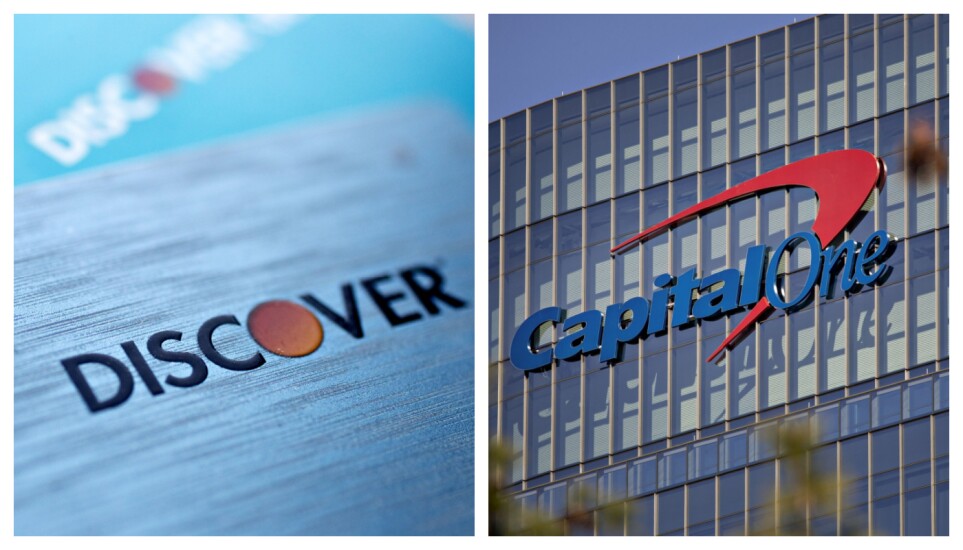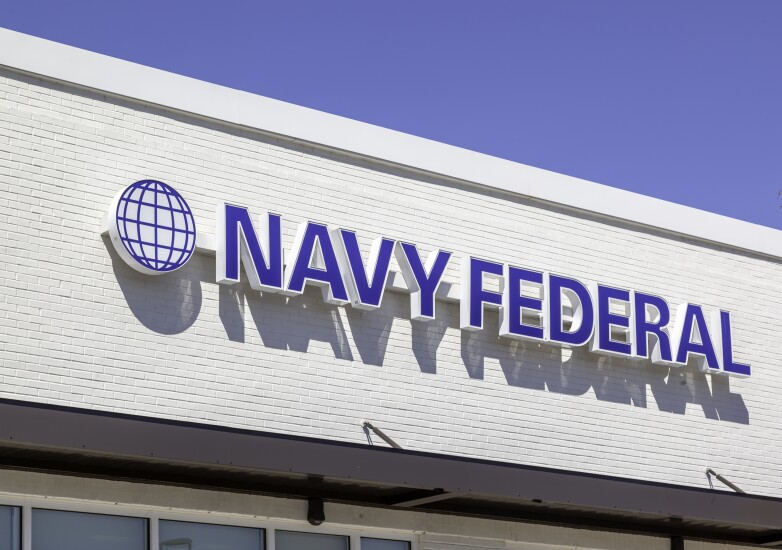In this month's roundup of top banking news: Navy Federal Credit Union officially launches its overseas banking program, Republic First Bank in Philadelphia falls to capital troubles and investor outrage, deeper looks at talks between Discover and Capital One and more.

Capital One and Discover walked away from talks before reaching a deal
In the second half of last year, as Riverwoods, Illinois-based Discover was dealing with a series of compliance and operational challenges, investment bankers started inquiring about the company's interest in a potential sale, Capital One said in a securities filing on April 19. The filing provides new details about how
One of the people who reached out to Discover's board chair, Thomas Maheras, was Stephen Crawford, an advisor to Capital One CEO Richard Fairbank. Crawford first made contact in the middle of August, according to the filing.

Navy Federal contract with Department of Defense is live
The $171 billion-asset credit union
"The

Will the Capital One-Discover merger be approved? A guide to the issues
It could be blocked by U.S. banking regulators. The merger-skeptical Department of Justice could sue to block the tie-up, much like it did in the failed merger of JetBlue and Spirit airlines. Or the deal might get approved despite concerns from antitrust hawks.
Critics argue that the merger would create a massive credit card company, limit options for subprime borrowers and fail to put a meaningful dent in the market power of Visa and Mastercard.

A Utah bank is gone after 16 years of losses. Why did it survive so long?
The achingly slow demise of Liberty Bank in Salt Lake City is not technically a bank failure, a bankruptcy-like process where the Federal Deposit Insurance Corp. seizes an insolvent bank and sells off its assets.
But experts say the bank was headed in that direction long before regulators

Republic First fails; Fulton Bank acquires assets, branches
Fulton Bank in Lancaster, Pennsylvania, will assume substantially all of Republic First's $6 billion of assets and $4 billion of deposits, according to a statement from the FDIC.
Republic First's 32 branches, which are spread across Pennsylvania, New Jersey and New York, will open for business on the morning of April 29 — or the morning of April 27 for locations that normally operate on the weekend — as Fulton Bank branches, the agency announced.

Citi: The megabank that is always rebuilding
The long-beleaguered megabank — which has struggled with poor financial performance, ineffective risk management and internal controls and a stagnant stock price — has made strides in becoming a smaller, simpler firm since Fraser took over as CEO in 2021.
But the enterprisewide transformation that she's trying to execute isn't over.

Fed approves $1.3 billion merger of two New Jersey banks
The Federal Reserve Board approved Jersey City-based Provident Financial Services' all-stock acquisition of Oak Ridge-based Lakeland Bancorp. The deal was first struck in
Both banks are supervised by the Federal Deposit Insurance Corp. Because they both have bank holding companies, they are also supervised by the Fed.

SBA forges ahead with Funding Circle license despite pushback
Funding Circle US received word of SBA's decision, which came after about four months of review, on April 1, Ryan Metcalf, head of public affairs for the company, said on April 3. The company hopes to begin making 7(a) loans this month, Metcalf added.
SBA did not respond to a request for comment by deadline.

If Supreme Court sides with CFPB, 'flurry' of litigation moves forward
But many legal experts think the high court is more likely to rule in favor of the CFPB based on
Because the justices failed to devote much time to a remedy — and instead were highly skeptical that Congress improperly funded the bureau — many financial services industry lawyers are now gaming out what will happen to several rules and lawsuits that have been on hold pending the outcome of the case, Consumer Financial Protection Bureau v. Community Financial Services Association of America.

Synchrony hikes interest rates on credit cards to offset late-fee rule
The outcome of the CFFB's effort to slash credit card late fees
But with only three weeks left before the implementation date, Synchrony can't count on those outcomes. CEO Brian Doubles said on April 24 that the company is "executing our plan" after starting to roll out changes to its credit cards in December 2023.





